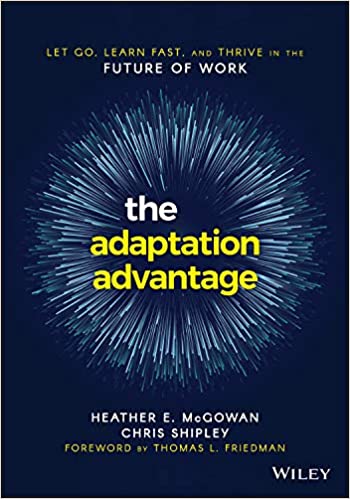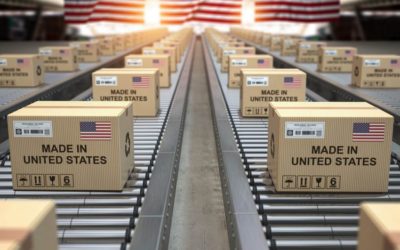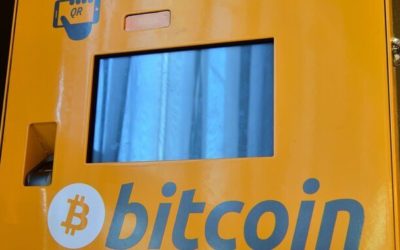
Read David Walsh’s Piece in ” The Adaptive Advantage”
A guide for individuals and organizations navigating the complex and ambiguous Future of Work
Foreword by New York Times columnist and best-selling author Thomas L. Friedman
Technology is changing work as we know it. Cultural norms are undergoing tectonic shifts. A global pandemic proves that we are inextricably connected whether we choose to be or not. So much change, so quickly, is disorienting.
Blog
Supporting The American Economic Comeback, Industrial and Manufacturing Can Transform and Compete with 5G
Every industry relies on computing, cloud storage, or other digital equipment to sell goods and services, while people’s individual lives often orbit around the internet, whether at home, at work, or on the move. Because of this new reliance on digital technology and the internet, expanding access to broadband has become critical.
Zero Trust at the Edge: Any Device, Any Network, Any Location Protection is Now Possible
The rapid growth of MSPs and MSSPs makes all the sense in the world, given how hard it is to keep up with the explosion of endpoints and applications in our increasingly hyper-connected world.
Reflecting on IBM’s Report about COVID-19 and The Future of Business
A friend of mine recently shared with me a study conducted by IBM’s Institute for Business Value. Given my experience and our collective experiences in 2020, a year where we were pushed to the limits by the global health crisis which accelerated our need to find new ways to work remotely in the middle of chaos.
Risky Business: Isolate the Browser or Risk Persistent and Growing Threats
Today I had the honor to officially join Isoolate as Chairman of the Board, after having spent months learning about and experiencing this start-up company’s powerful Remote Browser Isolation technology. I have been part of the Internet revolution for over thirty years and have been building cloud-based companies and applications for over twenty years, and in the last ten years have been immersed in cybersecurity that addresses massive enterprise risks.
The Adaption Advantage: Let Go, Learn Fast and Thrive in the Future of Work
In his forward to Heather E. McGowan and Chris Shipley’s landmark book, The Adaption Advantage (published recently by Wiley), Thomas Friedman, foreign affairs columnist for the New York Times, writes about the shift “from flat to fast to smart to deep.”
Lighting Up Smart Cities: Why New Fiber Optic Cable Technologies Will Pave The Way for the Extabyte Experience
Twenty years ago, it didn’t make much sense to carry a mobile device (or two with a flip phone and Blackberry as I did) if you planned to spend time in NYC’s midtown.
If You Want To Get Something Done Right – Don’t Do It Yourself: Leverage The Assets Already Out There
Great networks don’t simply connect people and things. They organize them and orchestrate them.
Multiplexing for Multiple Benefits: Network Slicing and the Future of High-Performance Extranets in 2020+
Those of us who have been developing ultra-secure, real time Extranets recognize the value of what the current “lingua franca” is now calling “Network Slicing.” During the last decade, one of the companies I had the honor to lead (Ribbon Communications) mastered the art of virtualizing session border control, which has been broadly embraced by telecommunications service providers given their move to software defined networking which makes it possible for them to offer services to multiple clients, including large enterprises, over a shared physical network infrastructure.
The Future of Trading is Faster than Ever; The Network is More Important than Ever
Over the past several years, a lot has been written about blockchain’s potential to solve a myriad of challenges, from simplifying money transfers, to securing digital voting, to dramatically easing supply chain management, to locking in land title transfers.
Crypto ATMs Simply Make Sense and Symbolize the Speed of Fintech Disruption in This New Decade
Back in the day, otherwise known as the 1990s, the switch to electronic trading shook the traditional stock exchanges to their core. Most traditionalists spent more time ignoring the inevitable, with one major exchange official declaring publicly that the Internet, and the “World Wide Web” as it was known at its birth, were fads.
There’s A New Law in Town: Walsh’s Law
IP Networks, Expanded by The IoT Edge and Massive Growth in Content Will Drive New Peering Models This New Decade.
How Will Direct Listings Impact the IPO Market in This New Decade?
Taking companies public on traditional exchanges has never been easy, has always been risky, and can lead to “unintended consequences” for entrepreneurs, their teams, and their original, current, and future investors.











